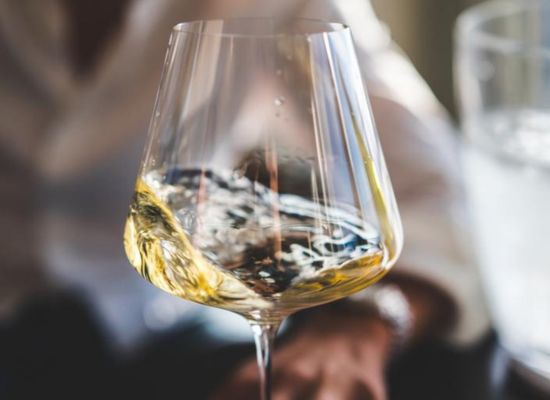Educating Sommeliers Worldwide.
By Beverage Trade Network

We question whether wine regions and appellations, alongside their numerous regulatory strictures, remain relevant for today’s sommelier. In the end, the answer must be yes. Defined wine regions provide numerous factors essential to enhancing wine sales.
Consider that emerging regions such as China, India, and various areas across the United States challenge the dominance of traditional European appellations by offering unique terroirs and innovative techniques. Modern consumers, eager for diverse wine experiences, often explore these new regions, valuing their distinctive flavors over the historical prestige of classic regions. Additionally, the rise of natural and low-intervention wines, which often fall outside traditional regulatory frameworks, emphasizes authenticity and expression, further challenging conventional definitions.
That’s not all. Climate change is altering the conditions that have historically defined wine regions, impacting grape growing and production in established areas. Sustainable practices and organic farming also lead winemakers to prioritize environmental concerns over strict adherence to regional standards. Market dynamics, including the complexity of regional labeling laws and the premium prices of prestigious wines, push consumers toward high-quality options from less renowned regions. This shift, coupled with a growing movement to democratize wine appreciation, values personal preference and innovation over traditional hierarchies, reflecting a broader cultural shift toward inclusivity and exploration in the wine world.
That said, the answer must be that, yes, defined wine regions and appellations featuring varying levels of regulation remain highly relevant for sommeliers.
The concept of a defined wine region remains crucial, serving as a foundation for understanding, selecting, and recommending wines. It anchors the sommelier's expertise, guiding both their education and the experiences created for clientele. A defined wine region encapsulates the essence of terroir, history, and regulatory standards, all of which are pivotal in shaping a wine’s identity. As sommeliers navigate an ever-evolving industry, the importance of these regions continues to resonate through various facets of their profession.
While it’s important to be aware of the trends mentioned at the beginning, the following factors mean that entities like AOCs and AVAs will be relevant to the on-trade for a long time to come.

Source: Unsplash
A defined wine region embodies the terroir, a term that encompasses the unique combination of soil, climate, topography, and human influence. This concept is fundamental for sommeliers as it provides a narrative and authenticity to the wines they present. For instance, a sommelier describing a Burgundy Pinot Noir can delve into the nuances of the Côte d'Or’s limestone-rich soils and cool climate, which impart distinct minerality and elegance to the wine. This detailed understanding allows sommeliers to convey a wine’s unique story, enhancing the customer's appreciation and experience.
The authenticity associated with a defined wine region also aids in distinguishing wines in a saturated market. Wines from renowned regions like Bordeaux, Napa Valley, and Barolo carry a certain prestige and expectation of quality. This recognition helps sommeliers in curating a wine list that balances customer preferences with the assurance of established excellence. Moreover, it allows them to introduce lesser-known regions by drawing parallels and contrasts with these benchmarks, thereby expanding the customer’s palate and knowledge.
Defined wine regions often come with stringent regulatory standards, which are essential for maintaining consistency and quality. Appellations such as France’s AOC (Appellation d'Origine Contrôlée) or Italy’s DOCG (Denominazione di Origine Controllata e Garantita) ensure that wines meet specific criteria regarding grape varieties, production methods, and aging requirements. For sommeliers, these regulations provide a reliable framework for selecting wines that adhere to traditional practices and quality benchmarks.
This regulatory assurance is particularly valuable when dealing with fine dining establishments or collectors who seek authenticity and provenance. A sommelier can confidently recommend a Châteauneuf-du-Pape, knowing that it adheres to strict guidelines that preserve its historical and qualitative integrity. This trust in the appellation system enhances the sommelier’s credibility and reinforces the establishment’s reputation for offering exceptional wines.
The journey to becoming a sommelier involves rigorous education, where understanding defined wine regions is paramount. Certifications from institutions like the Court of Master Sommeliers and the Wine & Spirit Education Trust (WSET) emphasize the significance of these regions in their curricula. This foundational knowledge equips sommeliers with the ability to identify and articulate the characteristics that distinguish wines from different regions.
Beyond initial certification, the dynamic nature of wine regions—driven by factors like climate change, innovation, and evolving consumer preferences—necessitates continuous learning. Sommeliers must stay abreast of developments such as the emergence of English sparkling wines or the revitalization of old-world regions like Greece and Hungary. Engaging with these changes allows sommeliers to remain relevant and informed, ensuring they can provide the most current and compelling recommendations to their customers.
A sommelier’s role extends beyond knowledge to creating a curated and memorable experience for their clientele. Defined wine regions offer a structured way to design wine lists that reflect diversity, balance, and coherence. By incorporating wines from established and emerging regions, sommeliers can craft a selection that caters to various tastes and preferences while showcasing a broad spectrum of styles and terroirs.
For example, a sommelier might construct a wine list that highlights the contrast between the bold, tannic reds of Barossa Valley and the elegant, refined wines of Bordeaux. This intentional curation not only enhances the dining experience but also educates customers about the diversity and richness of the wine world. Furthermore, themed tastings and events centered around specific regions can deepen customer engagement, fostering a deeper connection to the wines and their origins.
The emphasis on defined wine regions also intersects with the growing focus on sustainability and supporting local economies. Many regions are at the forefront of sustainable viticulture, adopting practices that minimize environmental impact and promote biodiversity. For sommeliers, this alignment with sustainability can be a compelling narrative that resonates with environmentally conscious consumers.
Highlighting wines from regions committed to organic or biodynamic practices, such as Alsace or Sonoma, allows sommeliers to advocate for sustainable choices while offering high-quality options. Additionally, promoting wines from smaller, lesser-known regions supports local economies and artisanal producers, contributing to the preservation of traditional winemaking practices and cultural heritage.
While defined wine regions provide a solid foundation, today’s sommeliers must also navigate a landscape influenced by globalization and innovation. The rise of non-traditional wine regions, such as China and India, challenges the established hierarchies and invites sommeliers to explore and embrace new possibilities. These emerging regions often blend traditional techniques with modern approaches, resulting in unique expressions that expand the sommelier’s repertoire.
Moreover, the increasing popularity of natural and low-intervention wines, which may not always conform to traditional regional regulations, requires sommeliers to balance respect for defined regions with openness to innovative practices. This adaptability ensures that sommeliers remain at the cutting edge of the industry, offering a dynamic and diverse selection that reflects both tradition and modernity.
The concept of a defined wine region remains indispensable for today’s sommelier, providing a framework for understanding, selecting, and presenting wines with authenticity and confidence. It underpins the sommelier’s expertise, offering a narrative that enhances the customer experience and supports quality assurance. As the wine industry evolves, sommeliers must balance the heritage and prestige of established regions with the opportunities presented by emerging areas and innovative practices. This dynamic interplay ensures that the sommelier’s role continues to be both rooted in tradition and responsive to the changing landscape of the wine world.
Header Image Source: Unsplash